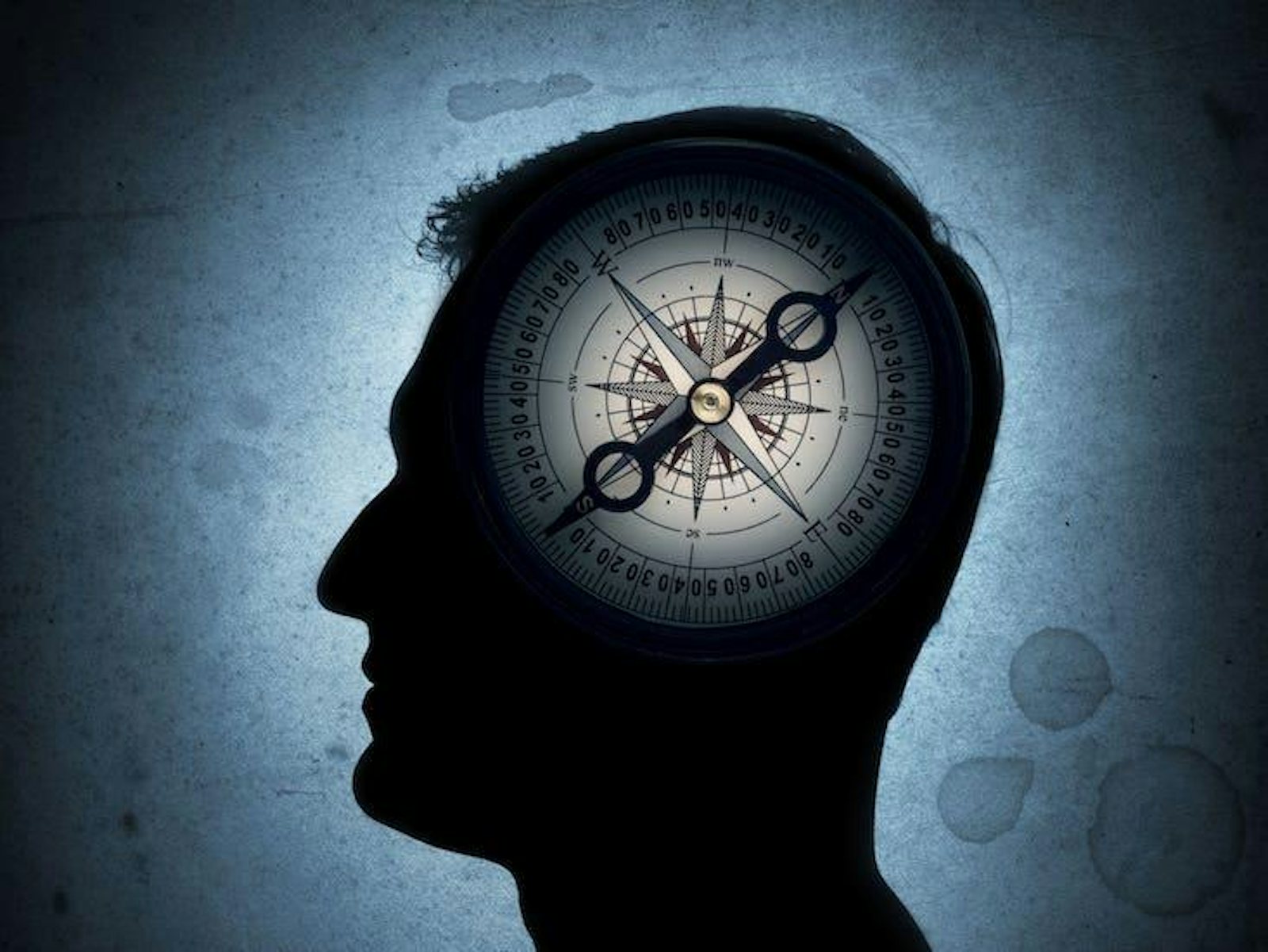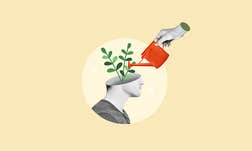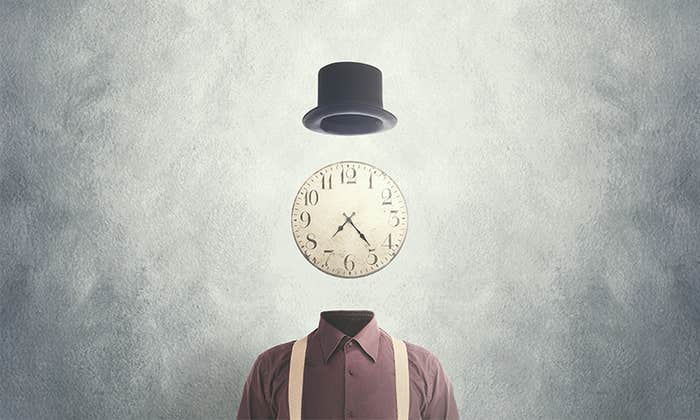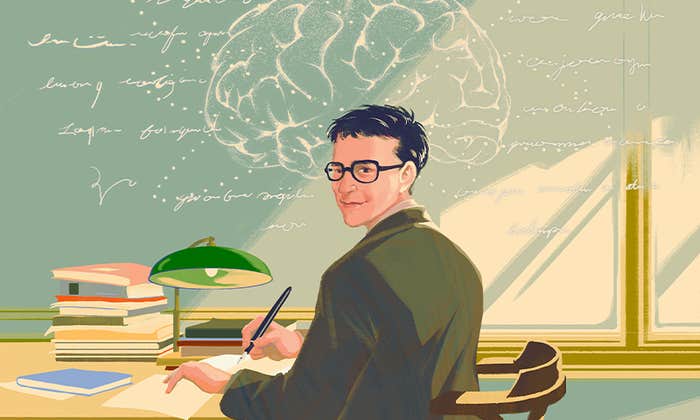Belief is a special kind of human power. Agustin Fuentes, an anthropologist at the University of Notre Dame, eloquently claims as much in his recent book Why We Believe: Evolution and the Human Way of Being. It’s the “most prominent, promising, and dangerous capacity humanity has evolved,” he writes, the power to “see and feel and know something—an idea, a vision, a necessity, a possibility, a truth—that is not immediately present to the senses, and then to invest, wholly and authentically, in that ‘something’ so that it becomes one’s reality.”
A great example of this is the widespread and intuitive idea that we have free will. Most people grow up with the notion that they are, in some sense, responsible for their thoughts and actions because, unlike animals, humans can think about their choices. We can reflect on what we should do, and other people—be they our parents or Supreme Court justices—can rightly hold us accountable. This is what most people mean when they talk about having free will. A Christian might say it goes back to Adam and Eve, who abused their God-given free will in defiantly eating of the tree of knowledge of good and evil. An atheist, on the other hand, may say we simply evolved free will along with other cognitive abilities that distinguish us from our mammalian cousins and ancestors.
You could also say that no such thing exists, a view which seems increasingly fashionable. “Cognitive neuroscience and popular media,” a new meta-analysis notes, “have been putting forward the idea that free will is an illusion, raising the question of what would happen if people stopped believing in free will altogether.” The paper, a preprint posted on PsyArXiv by University of Cologne social psychologist Oliver Genschow and his colleagues, delves into almost 150 studies, with over 26,000 participants, that sought to manipulate people’s belief in free will in order to tell whether believing, or disbelieving, in free will affects their morality.
People think they experience it. They feel they have it.
This isn’t an idle theoretical or academic question—beliefs about free will, Genschow says, seem to affect many “societally relevant” behaviors, like cheating. They also lie at the foundation of our criminal justice system, helping to justify retributive forms of punishment (the idea that people deserve to be locked up, for example, for committing certain crimes) as opposed to rehabilitative ones (confining and reforming people until they can safely re-enter society). Some philosophers, like Saul Smilansky, have argued that if we were to give up on free will, the consequences would be catastrophic.
Scientists have tried to manipulate free will beliefs in a number of ways. A common method is eroding the plausibility of the concept by appealing to the mechanistic nature of reality. You tell people that all of their behavior is determined by the laws of nature, be those physical, biological, or psychological laws. How could it be otherwise? If you rewound the universe, you’d end up making all of the same choices you did the first time around. You might question this deterministic outlook by bringing up the role of chance, but on closer inspection that, too, erodes free will’s plausibility—because how could we call a choice “free” if it arose out of randomness? Some, like physicist Max Tegmark, believe that neurons are simply too big, and that quantum effects all cancel out at scales much smaller than neurons. But even if there is true randomness that affects our choices, acting one way or another because of random fluctuations in quantum fields doesn’t feel much like free will.
This gist of the meta-analysis from Genschow and his colleagues suggests that free will’s proponents and detractors may be putting too much store in what people believe. The belief, or disbelief, doesn’t seem to affect individual behavior in any way we might care about. Manipulating people’s ideas about free will, at least in experimental conditions, has only a small and temporary effect. In other words, a persuasive anti-free will essay (the most effective method found) doesn’t change people’s core beliefs about free will—it only puts them in a temporary, slight anti-free will mindset. (Most people naturally believe in free will, so most of the manipulations studied try to reduce belief in it, though it can work both ways). There is no evidence that this induced change in free will beliefs has any effect on morality, such as antisocial behavior, cheating, conformity, or willingness to punish. There is also no definitive evidence against such effects. So for now, it appears that people’s beliefs in free will don’t really matter.
That’s quite a bold conclusion given that the most popular positions seem to be either: “Free will exists and is central to ethics,” and “Free will doesn’t exist, and it’s ethically important for everyone to recognize this fact.”
A good example of this first view comes in the new book Just Deserts: Debating Free Will by philosophers Daniel Dennett and Gregg Caruso. They argue about whether free will makes people deserving of punishment or praise for their actions, independently of the good that might result from punishing or praising them. To take an extreme example, suppose there were 10 people left on Earth, and one killed the other nine. Assume there is no forward-looking reason to punish them: There are no more people they could possibly kill, no other people to learn by making an example of this person, and so on. Does this person still deserve to be punished for what they did?
Free will, for Dennett, is the thing that would make the answer “yes.” That person deserves to be punished because of what they chose to do with their own free will. The problem with this, though, is that the existence of free will now depends on your theory of ethics! For example, I’m a utilitarian. I don’t believe retribution is ever morally justified. So because of my ethical theory, I must not believe in free will. But shouldn’t free will have to do with the nature of a person acting, their psychological properties, and their relationship to the laws of the universe—not whether or not utilitarianism is true?
The neuroscientist Sam Harris said as much in a recent episode of his Making Sense podcast. “Free will is an enduring problem for philosophy and science,” he said, “for one reason: People think they experience it. They feel they have it.”
For Harris, those people are wrong, not just about the existence of free will, but the character of their own experience. Harris, in that episode, says that, if there’s anything novel about his position on free will, it is the claim that the experience of having free will is a penetrable illusion: If you pay sufficient attention to your mind when making a decision, it’s possible to see that you’re not really “deciding” anything. Options of what you might do simply appear in consciousness, and the feeling of “choosing” an option is just another thought that appears in consciousness, completely out of your control.
To demonstrate, he asks listeners to think of a film and carefully observe what happens, in their mind’s eye, during this process. Various movies surface to mental awareness—but are these being chosen in any real sense? At this point he asks listeners if they experience free will in this moment. “If it’s not here, it’s not anywhere,” he says. “It is likely that every other choice you have made in your life has been more constrained than this one—what job to take, who to marry, whether to have kids, who to vote for. Most choices are much more obviously constrained by other variables than this one. So if you’re not free to simply pick a film right now, I don’t know where you’re going to find free will.”
You might argue, as Dennett has, that Harris is unnecessarily defining free will out of existence. There’s a useful version of free will we can hold on to, involving our capacity for self-control. But this, as Harris has said, would just be changing the subject: People who believe in free will think it’s deeper than self-control. It’s about the feeling that you are, in some sense, the author of your thoughts and actions.
The way these two thinkers have talked passed each other reminds us that it’s hard to change people’s beliefs about free will. So, it can feel like a relief to realize, at least according to Genschow’s meta-analysis, that even when you can change people’s beliefs, it seems to make no moral difference anyway.
In Why We Believe, Fuentes writes, “The human capacity for belief, the specifics of belief, and our diverse belief systems structure and shape our daily lives, our societies, and the world around us.” In the case of free will, this may be less true than we have been led to believe. ![]()
Lead illustration: It’s hard to change people’s beliefs about free will. So, it can feel like a relief to realize that even when you can change people’s beliefs, it seems to make no moral difference anyway. Credit: Triff / Shutterstock.
Prefer to listen?




























